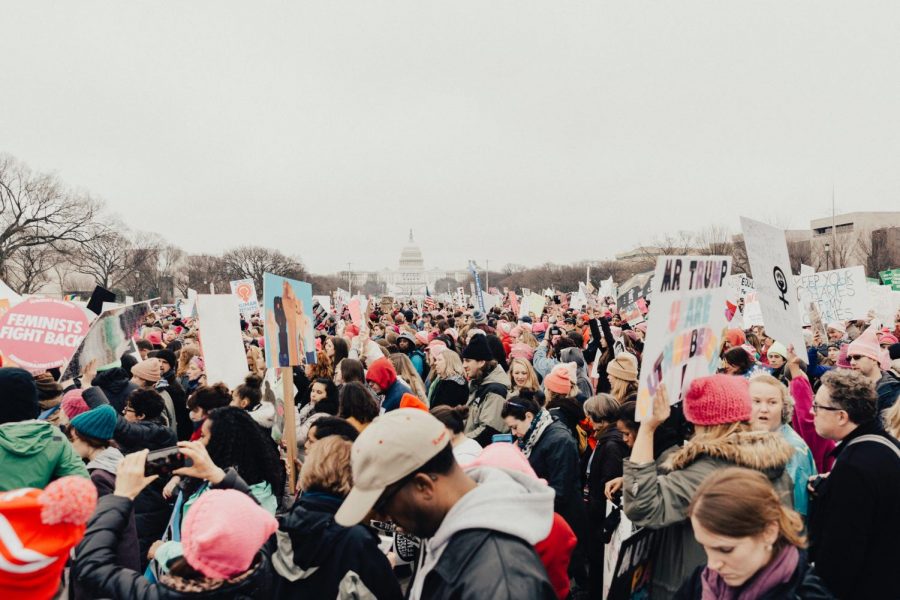- Reflector
- Reflector: Arts & Entertainment
- Reflector: Entertainment | Pop Culture
- Reflector: Health & Fitness
- Reflector: Life & Style
- Reflector: Social Justice
Going Beyond Performative Feminism
March 5, 2021
March is Women’s History Month and we need to talk about how everyone can be a better ally and a worthwhile advocate. A better advocate for everyone, for women, for the LGBTQ+ community, for people of color, etc. No, this is not an article on how to teach you to be a feminist, hopefully, that’s already covered. I wanted to talk about how to be a feminist without seeming performative or overcompensating.
Being performative is a concern when talking about any form of activism and allyship. You can advocate for those who do not look like you, do not identify themselves the same as you, without seeming disingenuous. That’s what being performative essentially means, in an advocacy sense. An article on performative allyship by scarymommy.com has a great definition- “when an individual from a majority or privileged group (white/straight/cis/abled) professes their support of and/or solidarity with a marginalized group (identifies themselves as an ally) in a way that either isn’t helpful to that group, draws attention away from that group, or actively harms that group.”
If given some thought, it is not too hard to notice the performative activism whenever a particular social movement gets put into the public eye. When the Black Lives Matter (BLM) movement garnered more attention in the past year or two, a lot of people thought that posting a black square on their Instagram was ~the move~.
This was performative because while bringing awareness to a movement may prove helpful in the beginning stages when it comes to BLM, awareness is not what’s needed at this point. Changes in laws and societal behavior are what’s needed. Sure, if a movement is fighting for the discovery of a cure of a disease or the acceptance of identities or characteristics people cannot change- an Instagram post might prove significant. But for a movement against pure hate and one fighting for laws to be made and people to stop being killed- an Instagram post is not doing anything for those oppressed. An Instagram post is simply making the poster feel better, and showing their followers that “they care”.
Another example of performative activism was when a slew of celebrities, led by Gal Gadot, got together and sang “Imagine” last March when COVID-19 was first getting on everyone’s radar. This was a tone-deaf, performative moment of “activism” because having a group of the richest people in Hollywood sing a song to help “boost morale” while thousands of people die does nothing for no one.
Every celebrity in the video could donate to research for finding a vaccine, or publicize informations on how to stay safe during a pandemic, or donate funds to help those who have been personally affected by the pandemic… but posting a video of you singing while you are quarantining…inexpensive homes…with easy access to tests … And the ability to jet off to the next country as soon as yours is in lockdown… is not doing anything for those struggling.
It allowed celebrities to pat themselves on the back because they “brought a smile” to the face of people dealing with poverty, sickness, and strife during a pandemic. Now, if this video was paired with a significant donation to a COVID-19 fund or organization, maybe it wouldn’t have been as laughable nor inappropriate. Yet, this was not the case.
Now how can you, the ever-improving feminist, avoid being performative or exploitative during Women’s History Month? You can put your money where your mouth is. You can make sure women are listened to in your everyday interactions, whether that’s a meeting, whether it’s in classes, whether it’s in your own friend group. If you are not a woman, you can use your inherent privilege to uplift the voices and actions of women around you. You can listen to the injustices they face, listen to their opinions, without giving your input right out the gate. You can advocate for equal rights and show that everyone should be a feminist, no matter your gender identity or sex.









